Has Joe Biden got the right stuff?
After a bad start, Biden may yet be the leader the West needs for a new ‘cold war’.
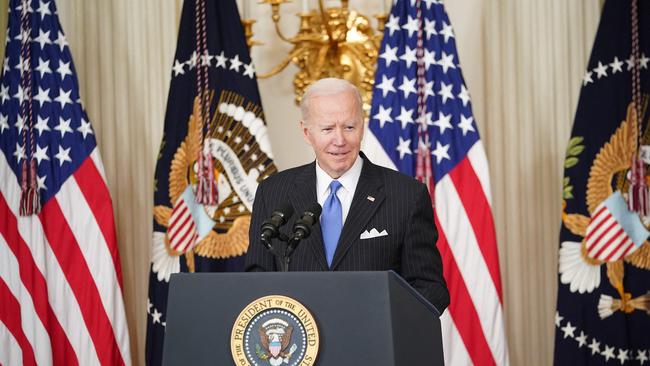
Russian forces commit unspeakable war crimes in Ukraine. China pursues the greatest peacetime military build-up we’ve seen. Iran moves inexorably to nuclear weapons. North Korea, like China, enlarges its nuclear weapons arsenal. The Taliban is rampant in Afghanistan. China and Russia deploy influence in the Middle East.
And a wounded Russia may yet be even more dangerous than a cocksure Russia.
Can Biden possibly be strong enough, skilful enough, and sufficiently master his own fractured, polarised society to hold the West together amid all these travails?
Biden is a maddening president. His mistakes are obvious, and fateful. Yet he is not the worst president America could have. We could easily have President Bernie Sanders. And this is not the worst version of Biden. Though plainly well past his prime, think how much worse a Biden administration might be if instead of Antony Blinken as Secretary of State and Jake Sullivan as National Security Adviser, we had John Kerry and Susan Rice occupying those positions, and some left-wing congressional figure at the Pentagon, instead of a respected, though obviously politically limited, general in Lloyd Austin.
As former British prime minister Jim Callaghan remarked: the Americans are exasperating, but they are the only Americans we have. Similarly, Biden is far from ideal, but he’s the only leader the free world has.
So, is Biden our Harry Truman or our Jimmy Carter? Truman was the unlikely vice-president (chosen mainly because the previous vice-president to Franklin Roosevelt, Henry Wallace, was a pro-Soviet kook). The Democratic Party bosses underestimated Truman, a failed haberdasher, thinking they could manipulate him. Truman became a great president, staring down the Soviets and the Chinese, saving South Korea in war, with the courage to preserve liberty and the judgment to avoid nuclear conflagration. He set the template for allied leadership for the rest of the Cold War.
Or is Biden today’s Carter? The Georgia governor looked so qualified, so reasonable, exuded such empathy. Yet more than any modern president, almost all his strategic judgments were wrong. He was perennially weak and confused, his policies erratic and inconsistent, his pronouncements often countermanded by his senior officials (he once declared all US troops would leave South Korea). He had some achievements, but he was a failed president. He saw “malaise” in American society. He was the malaise himself, and voters chose his complete opposite in Ronald Reagan.
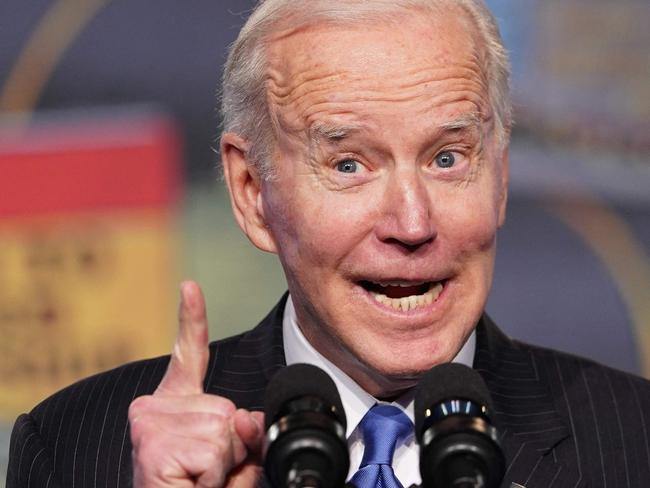
So far, Biden has a bit of Carter and a bit of Truman. Mike Green, soon to become CEO of the US Studies Centre, was the Asia policy tsar in George W Bush’s administration and is the most influential Republican voice on Asia. He tells me he thinks Biden has at least got the basic operating principle of his presidency right: “He understands that China and Russia want to challenge US power and that America’s greatest strength is its alliances.”
Green nominates the withdrawal from Afghanistan as the Biden administration at its least impressive, but this is balanced by the effective assembling of the international coalition to support Ukraine, when the Biden administration has been at its best.
First, let’s consider the unique and astonishing phenomenon of Biden’s relentless verbal gaffes. Donald Trump was wildly undisciplined in the way he talked. Some things he said were true and brave, many were untrue and contemptible, some bizarre. But you never had the sense he said something he didn’t mean to say.
Biden’s gaffes at their worst are dismaying and sometimes strategically confusing. On his recent trip to Europe, he said if Russia used chemical weapons, the US would respond “in kind”. And he talked of US troops soon serving “in Ukraine”. The White House hastily corrected Biden’s statements. The US would not be deploying chemical weapons and wasn’t planning to send troops to Ukraine.
This is not just strategically confusing, it makes Biden look a fool, worthy of ridicule. The satirical website, The Babylon Bee, ran a spoof report of White House Press Secretary Jen Psaki declaring: “The President has clearly said, and we agree, that Joe Biden doesn’t speak for the President of the United States”.
Yet the public sometimes likes the rough-hewn qualities of Biden, as they did Trump’s. Importantly, some of Biden’s gaffes are strategically prescient, morally forthright and politically useful. In separate statements, he said Vladimir Putin is a war criminal, that Putin should not remain in power and that the US would defend Taiwan militarily if it was attacked by China. The statements on Putin were true, righteous and ahead of a strategic consensus which later caught up. The statement on Taiwan will help discourage Beijing from military action.
There have been occasions, though, when Biden’s administration has been as confused and feckless as any we’ve seen in recent decades. The withdrawal from Afghanistan was not a coherent US government planning exercise but just a stubborn decision by Biden that the US was leaving immediately, while none of the agencies or cabinet secretaries took responsibility to make a bad policy work passably well.
Nothing was worse than failing to evacuate Afghans who had worked and fought with, and sometimes taken bullets for, the US. It was Biden himself who stopped a proper planning process. George Packer, no right-winger and no natural enemy of Biden’s, wrote searing reported essays on the withdrawal in all its ugly incompetence. He commented: “If, on the way out of Afghanistan, America broke its promises to people at great risk of revenge killings, its already battered international reputation would be further damaged. Such a failure would also injure the morale of American troops, who were now staring at a lost war, and whose code of honour depended on leaving no one behind … the burden of shame fell on Joe Biden.”
We will never know whether the image of weakness, incompetence and disarray the Afghan debacle communicated encouraged Putin to invade Ukraine. We have to be careful of such conclusions. It is a mistake, analytically and morally, to blame democratic leaders for the actions of despots. NATO expansion did not shape Putin’s personality. That was formed by the KGB, the ruthless entry he had into St Petersburg politics, and the swamplands of extreme Russian nationalism and cultural chauvinism in which he finds his most fevered support.
Nonetheless, Biden certainly failed to deter Putin. Again, his gaffes didn’t help, as when he went off script and said that a “minor incursion” into Ukraine by Russia would not necessarily provoke a US response.
But as the Ukraine crisis has gone on, Biden has got better. His cabinet is competent and diligent, but they are not great national figures. Democrats are natural Atlanticists. Co-operating with the European Union is like mother’s milk for a Democratic administration. In my view, Biden has been too cautious in the weapons he has authorised for Ukraine. But his moral charge against Putin is right and passionate, and he has moved consistently to increase aid to Ukraine and tighten sanctions on Russia. He hasn’t publicly harangued European leaders but he has helped them go further than they have ever dreamt they would. His leadership on Ukraine is not flawless, but it’s not too bad.
He is caught in the cruel energy contradiction of all centre-left leaders – banning and impeding Western production of gas and oil, but buying it from autocracies like Russia, Venezuela and Iran.
Biden’s innovation of publicly releasing the intelligence on what Moscow’s intentions and likely moves would be wrong-footed Putin. It undermined his propaganda and is the shrewdest move in the information war between democracies and autocracies, which had previously favoured dictatorships.
Biden has been pretty good on Asia policy. His forthright criticisms of Beijing and his acknowledgment of the deep strategic competition between China on one hand and the US and its allies on the other is reassuring.
But is it enough? Maybe. Maybe not. Biden recently proposed his defence budget for 2023. It involves a nominal increase of 4 per cent on the previous year, or 2 per cent on core funding. Here, revealingly and crucially, Biden is better than most Democrats, but inadequate to the demands of history. Biden is the first Democrat president since Lyndon Johnson to propose increased defence spending. Carter, Bill Clinton, Barack Obama all wanted to cut defence spending, a near Pavlovian reflex among Democrats.
But those three presidents operated at a time of much greater US military dominance than today. America could afford their dereliction on defence. Not so today. The US Navy has 298 battle force ships, a level the former US Commander of Pacific Forces, Admiral Bob Willard, once told me was way below what was necessary. Its official budget proposal for this year would build nine ships but retire 24. Meanwhile, China already has a much bigger navy, though not so technologically advanced. Beijing is planning to have 460 navy ships by 2030. The US Navy itself thinks it needs 350 main ships and 150 unmanned or lightly manned vessels.
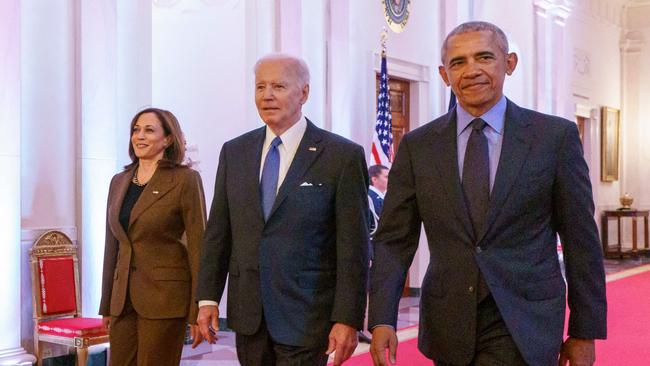
In his failure to advocate what the US, and the world, needs, Biden is no Truman or FDR. Biden may get better if, as seems likely, the Democrats lose control of Congress in November. For just as Democrats reflexively want to cut defence, Republicans want to increase it. If the Republicans hold congress, Biden can ignore the left of the Democratic Party.
The US now spends 3.2 per cent of GNP on defence (still vastly better than Australia at less than 2 per cent this year). It was 4.7 per cent in 2010. In 1990, as the Cold War was coming to an end, it was 5 per cent.
If it was still at this level, the US would be unchallengeable militarily. Not only that, the Pentagon has been a tremendous engine of economic innovation (it, not Al Gore, invented the internet).
But this overall decline is a failure specifically by Biden. He has increased US government spending by trillions of dollars and proposed only the most modest, inconsequential military spending increase. He diagnoses the China problem OK, and the Russia problem too, but his actions are not commensurate with the diagnosis.
Overall, the Biden administration has been effective in Asia, in part because it appointed the experienced, smart, reasonably hawkish – realistic might be a better word – Kurt Campbell as its boss of Asia policy.
Biden convened a summit of the Quad – US, India, Japan, Australia. He sent Blinken to a Quad foreign ministers’ meeting in Melbourne as the Russia/Ukraine crisis was unfolding. He has pioneered AUKUS – US, Britain and Australia. Apart from the promise of nuclear-powered submarines for Australia, AUKUS is mainly symbolism. It’s important symbolism for the three main players. For Biden, it signals intent, and support from allies, in Asia. For Britain, it re-establishes global relevance. And for Australia, it makes us look close to the greatest power on earth, and a middleweight who walks with the giants.
But for Biden, as for Australia, while AUKUS symbolism is good, it’s no substitute for real defence capability. Biden’s weakest point in Asia is his trade policy. The US Trade Representative post is now effectively protectionist. It puts such absurd conditions on trade co-operation that no Asian nation can qualify.
Biden has been a disaster in the Middle East. Democrats recoil from the Middle East after George W Bush’s Iraq war.
A simplistic democracy agenda, a la Obama’s Arab Spring, has led them to sacrifice a huge amount of US influence among the Gulf Arabs as they pursue a terrible deal with Iran. They can’t find the sweet spot between ground wars and abandonment.
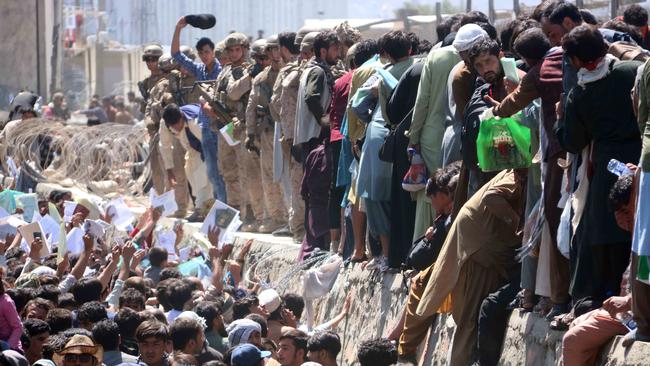
Globally, Biden is mostly better thought of than Trump was. But in his way, he’s just as unpredictable, just as difficult to assess realistically, recognising both his strengths and weaknesses.
The best judge of politics in Australia is John Howard. He told me that at the 2020 US election, if he had had a vote, he would, with many reservations, have opted for Trump, on the basis that the US economy had done well and there were doubts about Biden.
But, Howard says, Trump’s behaviour since the election has been so appalling in every way that he is plainly unfit for office and Howard thinks there could never be a reason to support Trump again.
As you’d expect from Howard, that is a nuanced, balanced, realistic assessment of Trump, one which would enrage both Trump lovers and Trump haters.
Though Biden is so much blander than Trump, he excites almost similarly polarised reactions. So far, in my judgment, Biden is not altogether a bad president, but he could be infinitely better.
Where he goes next, especially after November, is anybody’s guess. And who knows what might come after Biden.



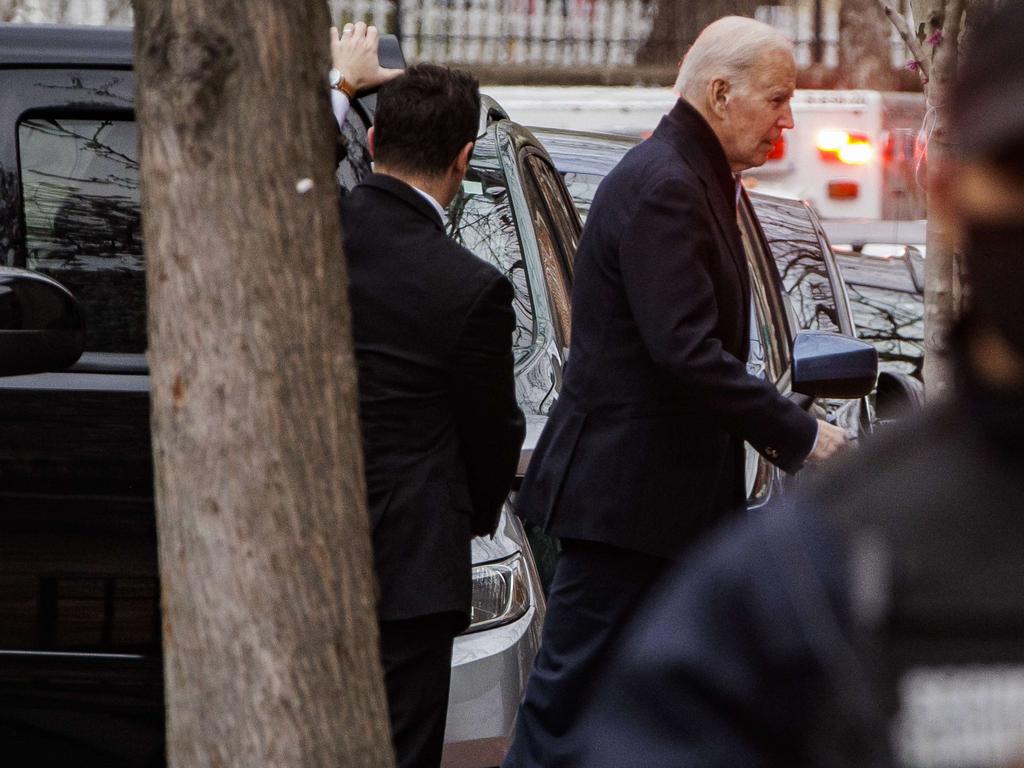
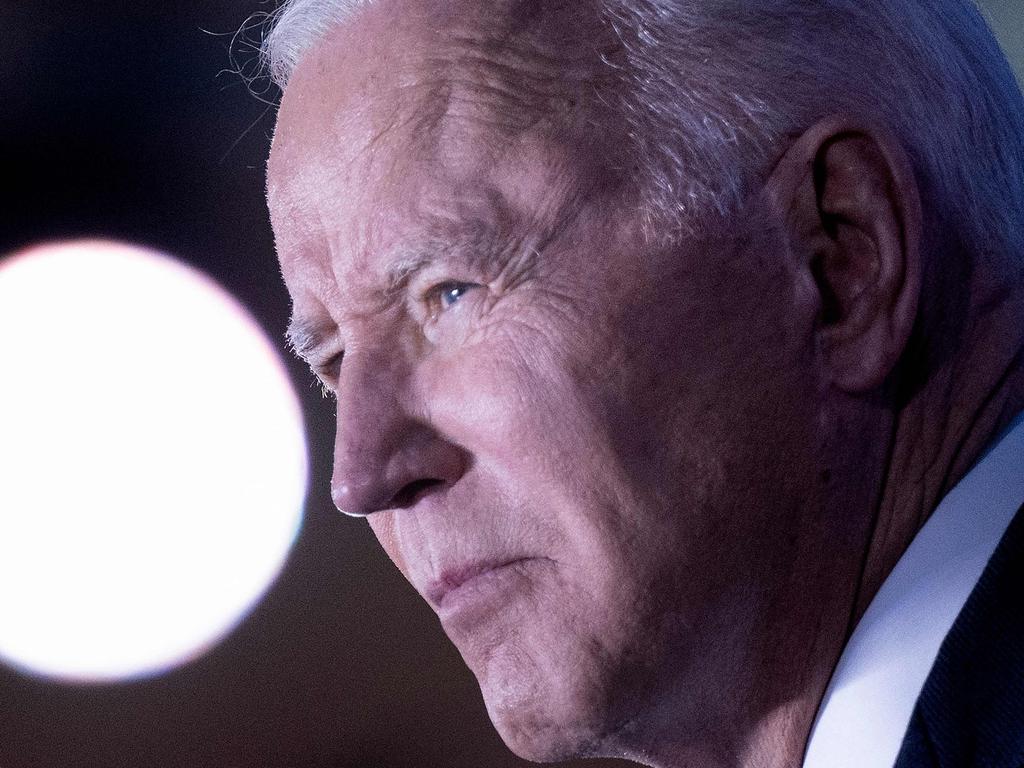


Can the 79-year-old Joe Biden possibly lead the West to victory in what is shaping now as a long, bitter and deeply uncertain struggle – a new “cold war” certainly, if very different from the last one – against the new axis of autocracies, principally Russia and China, but also including Iran, North Korea and a few others?